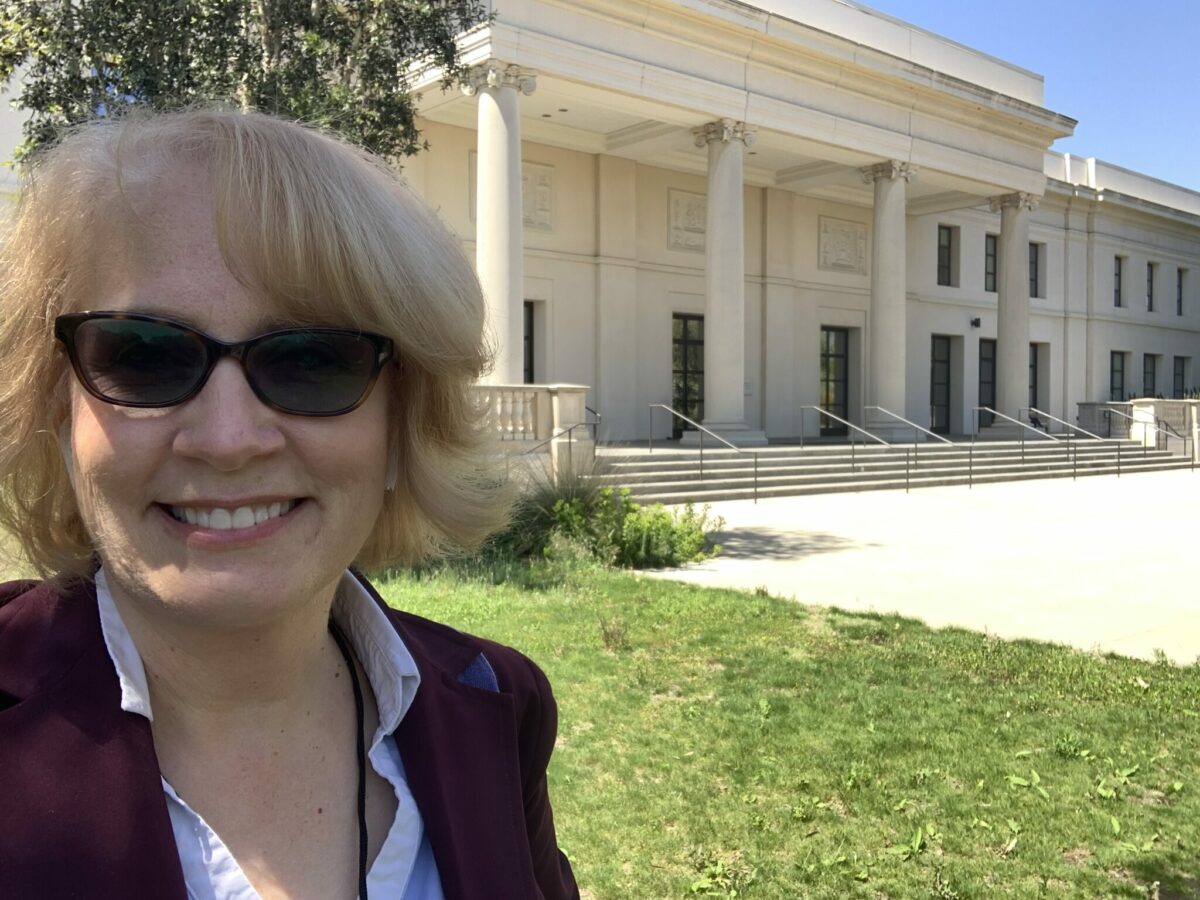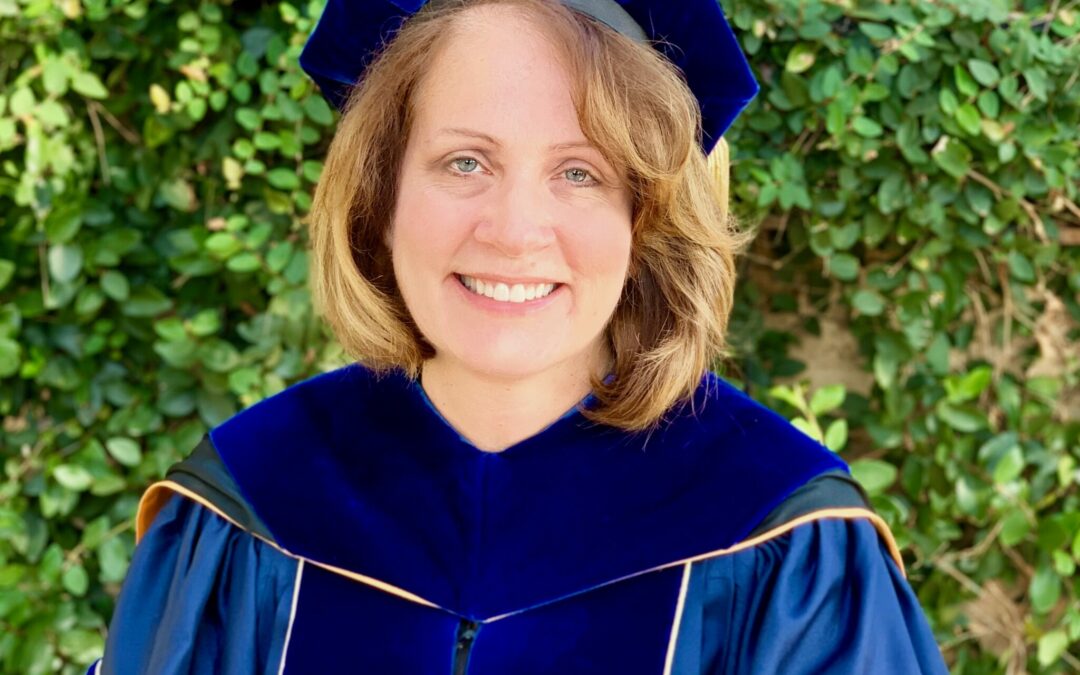Recently, I had the opportunity to sit down and chat with Dr. Lora Geriguis, one of La Sierra University’s English professors. This past fall quarter, she had her first experience teaching the Honors course UHNR 201 Seminar in Rhetoric.
Dr. Geriguis began her college career at Newbold College in England with a double major in English and history. Despite her original plan to stay for just one year, she fell in love with the campus and the program and decided to continue studying there for another year. As a junior, she started thinking about grad school applications. She transferred to UCR, where she completed her BA, MA, and Ph.D. During this time, she decided to keep only the English major and added a minor in classical studies with an emphasis on Latin.
While at UCR, she began her Ph.D. dissertation, for which she researched British literature from the seventeenth and eighteenth centuries with a special focus on post-colonial works, like Robinson Crusoe. She realized that while the plots of many of the novels written at that time were pro-colonialism, the colonized characters were written with a counter-colonial philosophy. “There were moments where the authors were forced to look at the humanity of the other person,” Dr. Geriguis explained.

A few years into teaching at La Sierra, Dr. Geriguis was introduced to the concept of ecocriticism, viewing literature and culture through the lens of nature. She commented that “it was like a lightning bolt hit me.” She realized that her dissertation was focused entirely on human relationships, even when nature played a huge role in the story. She then decided to look back on the works she had previously chosen, searching for anti-colonialism through the depictions of animals and natural resources. She had also become interested in the history of science, as the scientific method was being developed in England around the same time period that she had been studying. She wanted to know more about how culture responded to these new ideas of scientific observation. As such, she is currently working on a book project titled “Wit from Nature’s Store:” Reading Texts with/in Observational Culture, 1660-1760, which focuses on studying cultural and literary responses in England to the rising scientific method. “I want to answer the question of how a society responds to the idea of how knowledge is something we can perceive rather than receive,” mentioned Dr. Geriguis.
When she is not writing and reading up on her academic interests, Dr. Geriguis enjoys getting lost in books that bring her closer to those around her. While she was the English department chair, she realized that she hardly read anything for fun. “I decided to start picking books that would bring me closer to each one of the faculty members in the department,” Dr. Geriguis expressed. She also started to read more contemporary novels that her daughter Julia would recommend to her, helping to bring the two of them together.

In the fall of 2022, Dr. Geriguis was given the opportunity to teach UHNR 201 Seminar in Rhetoric for the first time. This class builds heavily on conversation regarding rhetoric and improving rhetoric practices. Discussing audience and occasion and learning about writing and the power of words were common focuses of the weekly class periods. As an English professor, this was something that she was comfortable teaching. However, the other focus of the course has students working on their worldview paper that they started during UHNR 101 and will polish during their final year. “I wanted to know how the students in our program are thinking about a worldview paper,” stated Dr. Geriguis. She appreciated that students were just as willing to explore what a worldview meant to them, allowing them to develop new ideas in class. By looking over the students’ first pass at the paper, she quickly realized that they were viewing their worldview as more abstract and full of big ideas about the world. This meant that a lot of papers across different students contained the same concepts. She decided to encourage students toward making their papers more individual by incorporating narrative writing about personal experiences that helped shape how they view the world. By the end of the quarter, the worldview papers took on a distinct trend. “I noticed that most papers followed one of two paths, either the story of their education or a coming of age story,” Dr. Geriguis shared.
Even though it was her first time teaching the class, Dr. Geriguis appreciated how the sophomore cohort was willing to work with her to create a collaborative learning environment: “The individual cohort was the most gifted and enthusiastic at discussion that I can remember having in any class for years.” However, she realizes that there is always room for improvement and is already thinking about what she wants to change for next year. At the end of the class, students are meant to take everything that they learned within the context of rhetoric and apply it to a more contemporary setting, such as social media. Each student created a presentation of “memes” that they taught to Dr. Geriguis. The goal was to discern patterns in the rhetoric of the media shared by each person to find what this generation values. “In execution, we ended up having so much fun that day. I’d never laughed as much in a class period,” Dr. Geriguis said. With the next cohort (current Honors freshmen), she hopes to underline what each student learned about his or her own rhetoric during the exercise. She thoroughly enjoyed her time and looks forward to teaching it again next fall.
— Quinn MacFarland (English: Literature, Class of 2025)

